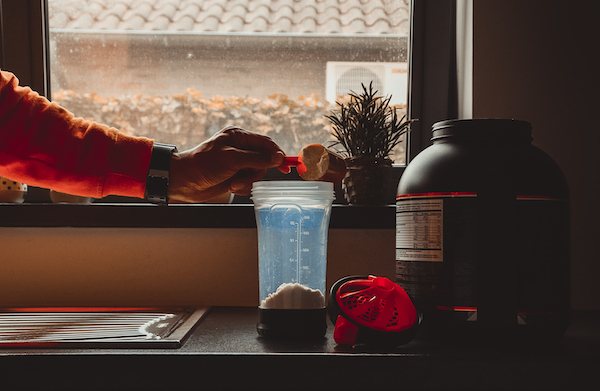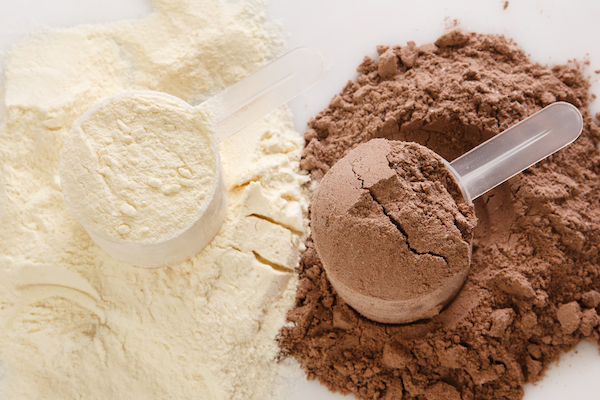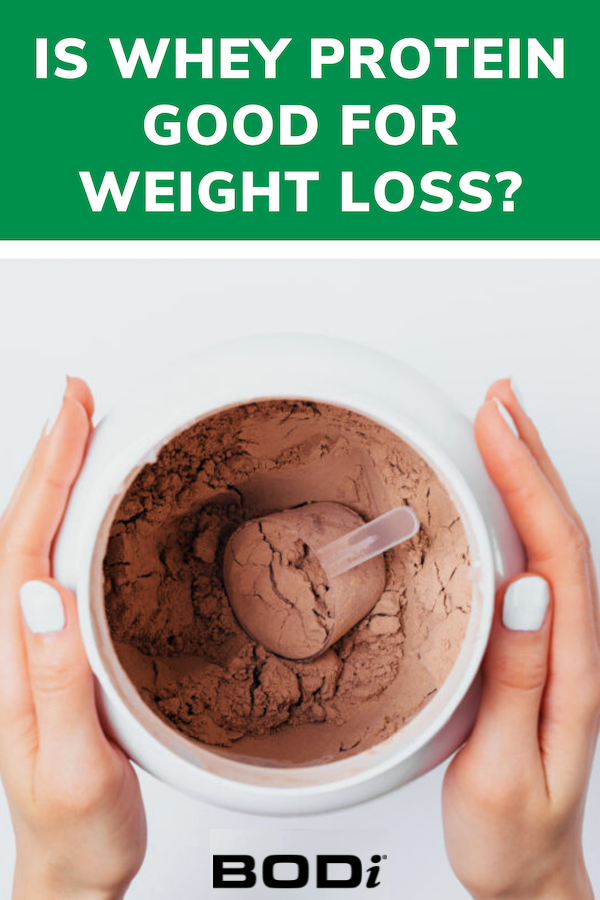Of all the reasons to try whey protein, weight loss likely flies under the radar. But is weight protein good for weight loss? What does whey protein do for your body — and what the heck is whey, anyway?
What Is Whey?

“Whey is a cow dairy protein,” explains Tina Marinaccio, MS, RD, who offers nutrition counseling and cooking classes in the greater New York City area. “When cheese is made, another protein called casein is coagulated, and whey remains liquid and runs off with lactose.”
Sound familiar? You might have learned about whey in nursery school.
“Remember the old Mother Goose rhyme about Little Miss Muffet eating her curds and whey?” says Marinaccio. “The curds were the coagulated casein, and the whey was the liquid portion.”
(Little Miss Muffet was eating cottage cheese — and likely not thinking about whey protein, weight loss, or her gains — as she sat on her tuffet.)
While both casein and whey are derived from dairy, the proteins are metabolized differently in your body.
“Whey protein is digested more quickly than casein protein,” adds Amy Gorin, MS, RDN, owner of Amy Gorin Nutrition in the New York City area. “They are both complete proteins.”
Can Whey Protein Help Support Your Weight Loss Plan?
Let’s look at the science behind weight loss and how whey protein can fit into your plan:
Whey is high in the amino acid leucine, says Marinaccio, which is specifically why whey protein is beneficial for both preserving muscle and helping support fat loss. Research shows that whey protein also encourages the release of anabolic (muscle-building) hormones, including insulin.
While you can take whey protein powder at any time of day, the best time to take it is after a workout because it’s a fast-digesting protein.
“Some studies suggest that consuming whey protein after intense exercise may help speed muscle recovery,” adds Gorin.*
But while whey protein powder can certainly be part of your weight-loss plan, it shouldn’t be considered a magic bullet.
“The more important thing is fueling properly before and after a hard workout — eating a little protein and carbs beforehand and more of both afterward,” says Gorin. “Whey supplements are a way to get that protein. The protein beforehand potentially helps make amino acids available to your muscles so your body doesn’t break down protein in your muscles. Afterward, it helps your muscles to repair and build strength.”
A great way to up your post-workout protein is Beachbody Performance Recover. Our powder packs 20 grams of protein per serving to help you recover faster and come back stronger, while pomegranate extract helps reduce post-exercise muscle soreness. Our simple formula has no synthetic colors and no artificial flavors, sweeteners, or preservatives.*
How to Use Whey Protein for Weight Loss

Your meal plan is going to look different when you’re eating for weight loss versus weight gain. Whey protein powder can help you meet your protein goals while still staying within your calorie range.
“Per ounce, most brands provide about 12 to 18 grams of protein,” says Gorin. “It’s very easy to add to many types of foods.” These include:
You can also stir whey protein powder into yogurt, smoothies, oatmeal, or applesauce, make your own protein pudding, freeze protein shakes into creamy ice pops, or blend whey into iced coffee drinks for a boost of protein with any meal or snack. It easily mixes into liquids and isn’t chalky like other types of protein powders can be, says Marinaccio.
“Whey protein drinks have a silky texture, which is pleasing to the palate,” she adds.
How Do I Choose Whey Protein for Weight Loss?
Not all whey protein powders are created equal, so do your research before choosing the right one for you. There are three basic types:
- Whey protein isolate is the purest protein powder, consisting of 90 percent protein (with 0.5 percent each milkfat and lactose).
- Whey concentrate contains anywhere between 25 percent and 89 percent protein.
- Whey powder contains just 11 percent to 14.5 percent protein (whey and whey concentrate contain far more milkfat and lactose than whey protein isolate).
When choosing a whey protein powder, look for brands that do not use artificial ingredients (like flavors, colors, sweeteners, and preservatives). Gorin also suggests checking the label to ensure that your whey protein powder contains minimal — if any — added sugars.
“Like with any supplement you purchase, I recommend looking for a protein powder that’s third-party tested,” says Gorin. “This tells you that the supplement contains what it says it does and that it’s not contaminated.”

*These statements have not been evaluated by the Food and Drug Administration. This product is not intended to diagnose, treat, cure, or prevent any disease.

